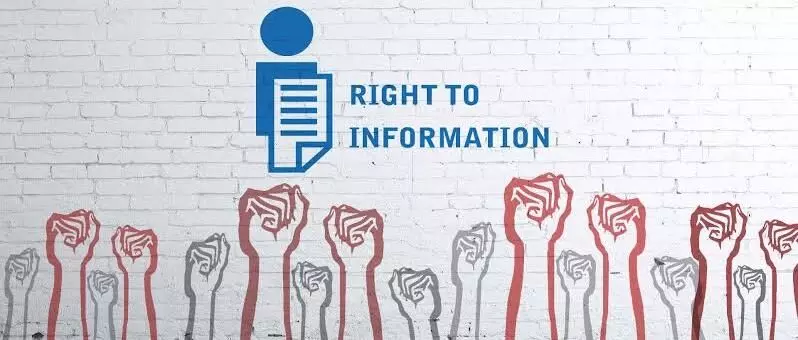
Centre fails to cite valid reasons for 40% of RTI rejections
text_fieldsNew Delhi: The Central Information Commission (CIC)'s annual report has revealed that the centre has rejected 4.3% of all Right to Information (RTI) requests during the year 2019-20 which is the lowest ever rejection rate, the Hindu reported.
However, 40% of these rejections were not under the permissible exemptions under the RTI Act such as sections 8, 9, 11, or 24 but the category of "others".
In 2019-20, public authorities under the Central government had received about 13.7 lakh RTI requests. Out of them, 58,634 have been rejected. Indicating the erosion of transparency of the central government, 90% of these rejections were done by the Prime Minster's Office. It rejected a total of 2,234 petitions out of the 11,138 petitions received without citing any valid reasons. And the Finance Ministry alone rejected more than 10,000 cases (40% of its total RTI rejections) without providing a valid reason under the Act.
According to the analysis of CIC's macro-data from Central ministries by RTI activist Venkatesh Nayak, the Home Ministry has the highest rate of rejection of RTI requests exempting from the disclosure of information for the 20% RTIs received. Meanwhile, the rejection rate of the Agriculture Ministry doubled from 2% in 2018-19 to 4% in 2019-20. The Delhi Police and the Army also recorded an increase in the rates of rejection.
Mr Nayak's analysis further noted that 38.7% of rejection of the public authorities in 2019-20 was without giving valid reasons in the permissible exemption clause and classified them under the 'Others' category in the CIC data. This marked an increase from 33% rejection rates of RTI requests without citing permissible exemption of the previous year.
More than 90% of rejections were done by the Prime Minister's Office, the Delhi High Court, the Comptroller and Auditor General, as well as the Ministries of Railways, Road Transport, Food Processing, and Panchayati Raj fell into the Others category, Mr Nayak's analysis found.
The rejection rate has been going downwards since 2005-6 with 13.9% of the rejection and later further falling to 8.4% in 2014-15. Now, the rejection rate has marked its lowest ever rate of 4.3% in 2019-20.
As per the RTI Act, the public authorities could reject the RTI petitions they received on certain grounds including the information related to 'the sovereignty and integrity of India, the security, strategic, scientific, or economic interests of the state, relation with foreign state copyrights, or lead to incitement of an offence' and information which would 'endanger the life or physical safety of any person.
One-third of all permissible rejections invoked the clause from Section 8(1)(j) which permits not to disclose the personal information if disclosure has no relationship to any public activity or public interest or is likely to cause unwarranted invasion of the privacy of the individual concerned.






















